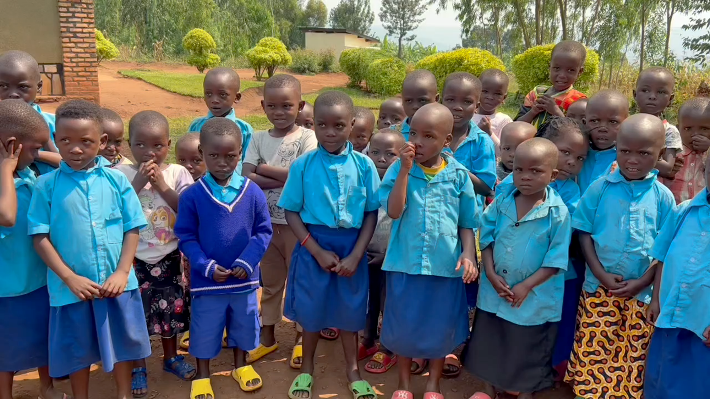
Embrace Rwanda – Creating an Environment for Healing and Hope
Embrace Rwanda was started in 2006 after Hilary King and a team of Anglicans from North Vancouver travelled to the Kigeme diocese in Rwanda. As they travelled in this rural region, they saw how these people were existing. The team wanted to work with nationals to help them improve their way of life. In 2008 they formed a Canadian charitable organization with the initial focus on maternity care for mothers and children living in poverty. Working with the locals, they developed the "Healthy MUMS Program” (HMP), seeking to improve maternity care so that the pregnancies would go to full term producing healthy babies.
To help mothers provide their families with a healthy diet and income, kitchen gardens were established, and families were taught how to raise chickens. Initially families received four hens and a rooster, which provided a source of food. When eggs were sold, income was raised for schooling and health insurance. The HMP grew and developed with five components:
- Family health and nutrition (Maternal and Child Health)
- Early Childhood for a Bright Future (ECBF)
- Healing the Next Generation (HNG)
- Promotion of Initiatives for Self-Employment (PISE)
- Vocational training
The HMP has gradually extended so that it is now active in five other Rwandan dioceses, and other countries are using this program as a model. The diagram below shows how the program has evolved with interrelated components and objectives.

Improvements in family and community life have included preschools and vocational training. In an agrarian society, economic development, food security and nutrition have advanced with livestock centres. The chicken centre has helped many families start raising chickens, and a recent initiative is to develop a pig centre with similar objectives.



St. Paul’s Focus on Missions team has been working with Embrace Rwanda because our longer-term projects have had complementary goals for improving education, reducing poverty and promoting sustainable local development.

